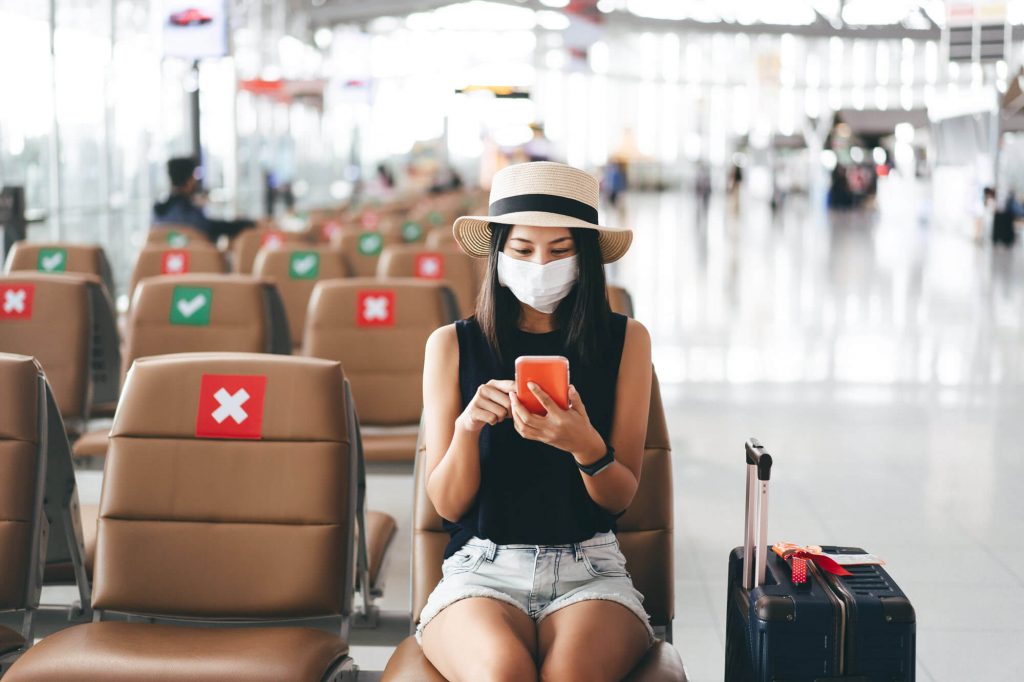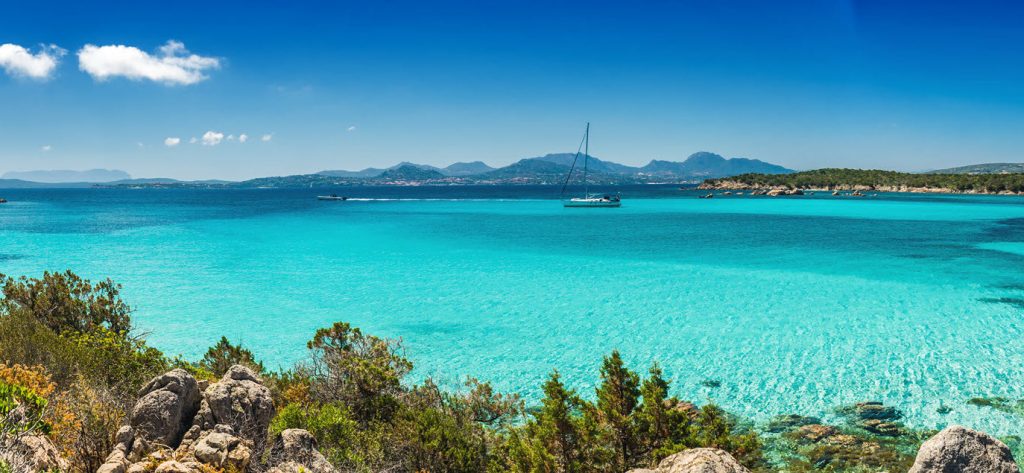(UPDATE October 15, 2021: Today the United States government announced that November 8 will be the date that all vaccinated travelers will be allowed to return to the U.S. regardless of country of origin. This means that after more than 500 days, travelers from the U.K., countries in the EU, India, Brazil and others will finally be able to fly into the U.S. While this is a huge relief for the inbound tourism economy, it is indirectly good news for for outbound travel as well. This move reduces the likelihood that other countries will ban U.S. travelers, barring a serious, new global variant. It also marks the perfect time to update the “15 Questions” blog that was first published in March 2021. Our comfort level with international destinations is now at plus/minus 50 countries. We are so excited about the prospect that I will begin posting country-by-country updates in the next few days. We look forward to sharing these with you!)
Avid journeyers are itching to get back to travelling. If you are like me, the sight of a large plane overhead brings a pang of longing, eager for the day when we can explore again. My last overseas business trip was in November 2019 when I visited Israel and West Bank/Palestine. My last overseas leisure trip was August 2019 when my family and I spent 10 days in Costa Rica. The prospect of not travelling in 2021 – or (banish the thought) 2022 – hurts my soul.
Vaccine supply and uptake in is rapidly improving in most parts of the world, though developing countries in Africa and in some other regions lag significantly. We now talk about “vaccine hesitancy” and “vaccine resistance” both in the U.S. and other countries that creates artificial caps on how high vaccination percentages will go. In the United States, when this post was last updated in June (before the Delta variant), the U.S. was in the low 40s in terms of vaccine rate. We are still struggling to reach 57% fully vaccinated, according to the CDC. Meanwhile, Canada, which was at 4% in June has now reached 73% vaccinated. Japan was at 7% at the beginning of the Olympics in July and is now at 66%.
Many of the unknowns during the pandemic are gradually or rapidly becoming “knowns”. As the murkiness clears, there is now a much clearer path to a return to overseas travel. And this makes this the perfect time to plan. I’m still working with clients to plan now and decide on dates later. It is now very possible to travel this fall and winter. The question is should you? Putting on my risk management hat, I have developed a list of 15 questions each traveler needs to ask before booking their next journey.

Internal Questions
The first five questions are ones that only you can answer. I can’t give you the correct answers, because all five involve your own personal risk assessment.
1. Are you vaccinated? Will you be vaccinated? As global citizens, we strongly hope the answer is “yes” unless you have a medical reason that prevents you from receiving a vaccine. We do not recommend that anyone travel without being vaccinated, and in our minds that means that children younger than 12 who aren’t eligible for the vaccine yet, should not go overseas. Hopefully, by the holidays, children ages 5-11 will also be fully vaccinated and they can join in those journeys. It is becoming abundantly clear that many countries have created a two-tier system for travel, with unvaccinated travelers having significant hurdles to enter, while vaccinated travelers typically can travel without quarantine. “Proof of COVID-19 vaccination” is becoming an essential travel document along with your passport.
2. What is your own personal comfort with risk? When I’m driving on the highway in a 65 mile an hour zone, I’m generally comfortable taking my Ford Fusion Hybrid up to around 75 miles per hour (okay, okay, 80 mph). Some drivers I pass are sitting right on the 65 mile an hour speed limit. Other drivers who pass me seem like they are blazing at 90 mph or faster. When it comes to travel in the age of COVID-19, which driver are you? Do you want to wait until vaccine distribution is widespread in the country that you are visiting? Or are you comfortable traveling to countries even if their vaccine rates are lower than the U.S. and their COVID curves haven’t rapidly declined?
3. What is your own personal comfort with uncertainty? Countries are constantly tweaking their rules regarding entry, quarantine, opening of sites, etc. Are you comfortable planning a trip understanding that your plans may be scuttled if a country has a pandemic spike and implements entry bans or quarantines – or if they suddenly order sites that you really wanted to experience to be closed if there is a COVID-19 uptick? Do you have destination flexibility to pivot to a “Plan B” location if your “Plan A” trip suddenly becomes not viable? Remember in April, some European countries went back into lockdown experiencing another wave of illness. And then in May, the situation in Europe improved to the point that they announced the opening of travel for the summer, but India suddenly faced surges in cases, hospitalizations and deaths. In June, South America and Southeast Asia started spiking again. And in August, the Delta variant began hitting the U.S. very hard. Will there be a “fifth wave”? Will there be new more contagious variants? These are all unknowns.
4. Are you comfortable spending money on a trip if you will be required by local laws to wear masks or social distance? Will this diminish your travel experience to the point you would rather wait until safety protocols are no longer needed?
5. Do you have time flexibility to extend your stay if essential? As we have learned, you can still get COVID-19 even after being fully vaccinated. The U.S. may continue or extend rules requiring a negative COVID-19 test before returning home. In the event you have a positive test, do you have flexibility to stay longer in the country of travel, or does this risk become a showstopper for you?

Documentation and Destination
6. Do you need a renewed passport or visa for your travels? As of Spring 2021, U.S. passport renewals were taking 10-12 weeks, with a 4-6 weeks expedited option. The turnaround times seem to have improved significantly during the summer. For countries where you will need an advance visa, many embassies and consulates stopped processing due to COVID-19. Others have resumed processing but are backlogged many months.
7. Are travelers from the United States welcome? In 2020, many countries restricted U.S. nationals from visiting due to the significant outbreaks of COVID-19 here. By now, however, countries that are open to travelers in general are once again allowing vaccinated Americans to visit, despite the Delta spike from the late summer and early fall. EU countries and United Kingdom opened to the U.S. in the summer. Singapore is about to reopen after being fully shuttered. But other countries are still either completely closed or are requiring all arrivals to quarantine.
8. How frequently does your destination country change its rules related to COVID-19? Some countries like Costa Rica, Mexico and much of the Caribbean reopened their doors in the spring or summer and did not waver even when COVID-19 surged in the U.S. Other countries like Israel seem to change their rules frequently with each spike or lull. You and your travel professional need to monitor COVID-19 cases in your destination and understand their government’s rules and regulations.
Getting There
9. Is it safe to fly? Aviation experts indicate that the ventilation systems on commercial aircraft are well-suited to keep travelers safe. They talk about the frequency with which cabin air is recirculated and filtered and how cabin ventilation is divided into zones. Nearly two years into the pandemic and there still has been very little data – either scientific or anecdotal – that show significant spread of COVID-19 on planes. With flying you also need to consider smaller planes overseas. While I am comfortable with the ventilation systems in Boeing and Airbus planes, and in the Embraer regional planes in the U.S., you can’t expect the same level of ventilation in the 15-seater planes that fly you on short hops across countries in Central America, Africa and Asia. The question about flights also extends to airports. It is not always easy to predict how crowded your gate area will be, as well as other areas where there are typically large numbers of people such as food outlets, shops and restrooms.
10. How easy is it to reach the destination? You need to consider whether overseas stops are required en route to your destination. The more stops and the more transit countries, the more likely you could encounter a COVID-19 logistics hurdle. Let’s assume you can fly from a major U.S. gateway like San Francisco, Chicago, Atlanta or New York. Currently you can fly to cities like London, Dubai, Istanbul, and Seoul non-stop – despite COVID-19. But to get to places like Prague, Nairobi, Cape Town, or Bangkok you are looking at one connection in an intermediary country. That adds overhead and logistical risk. What if you want to fly to Phuket, Thailand for its gorgeous beaches and coastline/island explorations? You are looking at two stops en route, and possibly a forced overnight. Our recommendation is to plan simpler, more direct trips until normalcy returns to the travel industry.

In Country
11. Are hotels safe? Most hotels in developed countries have taken appropriate steps to minimize the spread of COVID-19. Their financial viability depends on it. Minimizing time in hotel restaurants, avoiding gyms and pools, and limiting housekeeping visits are the most common safety tips. In developing countries, your travel professional needs to ask more pointed questions to understand if public safety measures are being implemented seriously and consistently by hotels you are considering.
12. How should I tour? During COVID-19, clearly the least risky approach to touring would be to hire a private driver/guide for all services, including airport transfers. Unless a destination has negligible active COVID-19 cases, guides and drivers should be wearing masks. Getting on a tour bus for a daytrip totally depends on where you are going. A guided group tour to Christ the Redeemer in Rio is not good idea for the near future, but there may be some destinations with few cases where a tour bus might be an acceptable risk for some travelers. Also, do as much outside touring as possible. The science has shown, it is harder to spread COVID-19 in a well-ventilated outdoor environment compared to an indoor museum or arena.
13. What is the quality of medical care? Before travelers depart, your travel professional should provide you with recommended hospitals for each destination you are visiting. Part of the assessment when choosing a destination in the era of COVID-19 is to understand the quality of medical care in each country, as it varies widely.

14. What are the rules for travelers who get sick? Many countries are currently more stringent than others when it comes to treating patients who exhibit COVID-like symptoms. In some cases, you might be forced to hospitalize even if you have mild symptoms. In some cases, you won’t be permitted to depart until you have two negative COVID-19 tests. Remember, the vaccines are considered plus or minus 90% effective, depending on the manufacturer. And while the likelihood of getting seriously ill from COVID-19 drops significantly after you are vaccinated, you could still test positive and encounter logistical issues in country or en route home.
15. What should I do about Travel Insurance? Even before COVID-19, I strongly encouraged travelers to purchase Cancel for Any Reason travel insurance. In September 2019 many months before the start of the outbreak, I booked a group of 18 people to the Middle East for travel during Spring Break 2020. All travelers booked the same travel insurance. Once COVID-19 made the trip impossible, we were able to secure 100% refunds for everyone between the travel supplier and the insurance company. (Note that depending on the circumstances, at least 75% of covered trip costs should be covered.) There were many reports in the media of uninsured travelers who recovered little or none of their trip costs. Travel insurance policies also provide protection for travelers who need to be hospitalized or evacuated while overseas. It is important to understand whether your travel insurance provider has changed its rules for COVID-19 before purchasing a policy.
(Originally published March 30, 2021)






